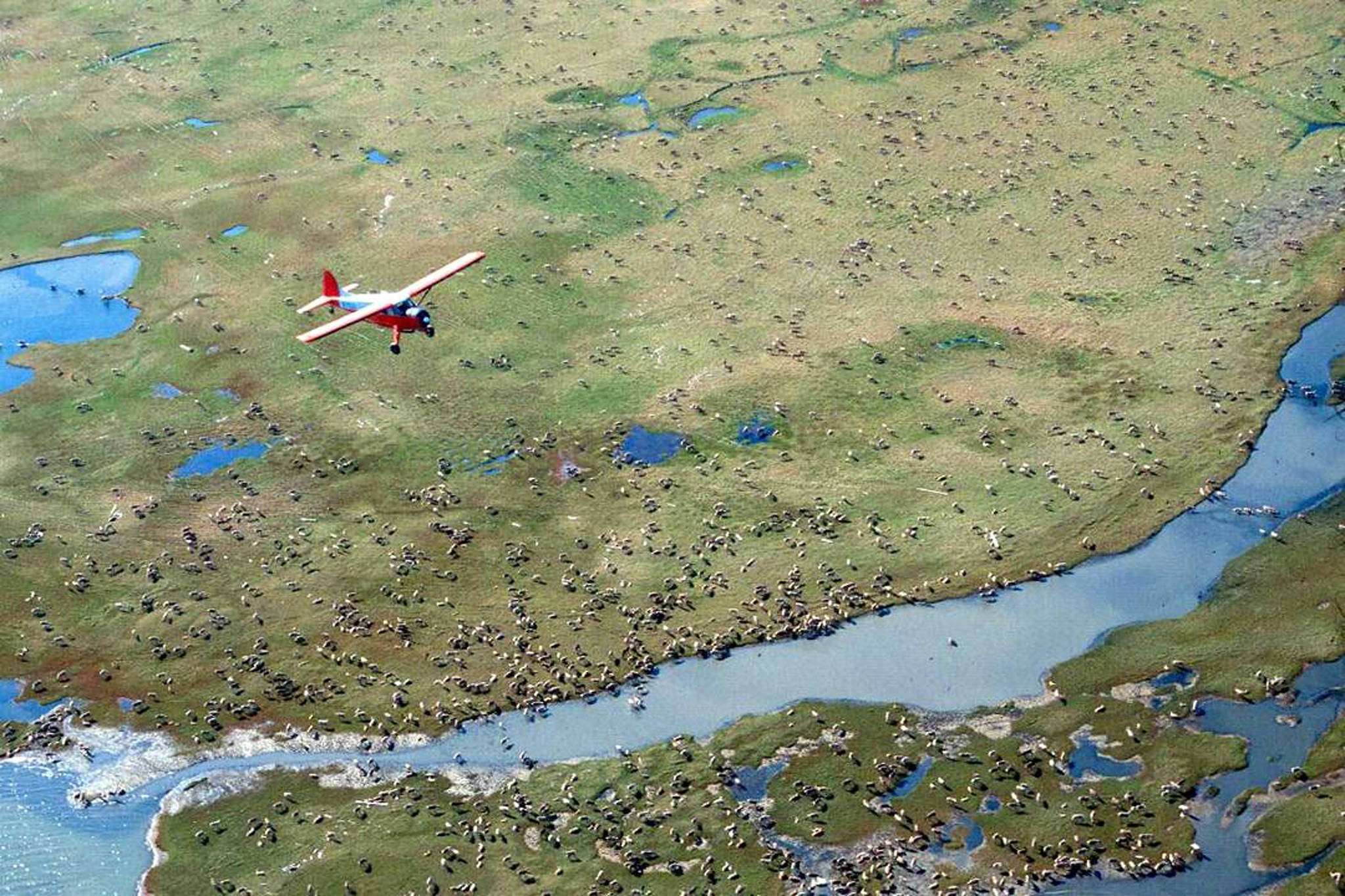This article has been updated to include new information.
By BECKY BOHRER
Associated Press
Attorneys for conservation groups asked a U.S. judge Monday to halt the issuance of oil and gas leases in the Arctic National Wildlife Refuge ahead of a planned sale this week.
U.S. District Court Judge Sharon Gleason said she would try to issue a decision by late Tuesday, the day before the sale that would offer tracts covering much of the refuge’s coastal plain.
The U.S. Bureau of Land Management has said the sale is in keeping with a 2017 law that called for at least two lease sales to be held within 10 years, a law hailed by Alaska political leaders, including the state’s Republican congressional delegation. Critics, however, say the Trump administration is trying to rush through the process in its waning days. President-elect Joe Biden has opposed drilling in the region.
Gleason is weighing requests from Indigenous and other conservation groups and tribal governments that, like the case she heard Monday involving the National Audubon Society and three other groups, seek to block the issuance of leases and seismic exploration activities pending decisions on underlying lawsuits challenging the adequacy of reviews on which they are based.
[Five stories that shaped out 2020]
Kate Glover, an attorney for the plaintiffs in Monday’s case, said scars on the landscape from seismic work, impacts on research trips and overflights were among the potential harms that could be faced if an injunction were not granted.
Paul Turcke, an attorney for the federal government, said any potential harms to the plaintiffs were hypothetical and speculative. Tyson Kade, an attorney for intervenors including the North Slope Borough and Native Village of Kaktovik, which support the land agency’s position, argued his clients could face economic impacts, such as loss of jobs and revenue, if lease-related activities were halted.
In addition to the planned lease sale in the refuge’s coastal plain, the Trump administration also has moved to open an additional 10,937 square miles (28,326 square kilometers) for oil and gas development in the National Petroleum Reserve-Alaska. That plan, announced Monday, was criticized by conservation groups as rushed and lacking protections, including for a productive wetland area. The Bureau of Land Management countered that its plan includes safeguards for wildlife and other resources.
The administration last fall announced plans to lift restrictions on logging and building roads in the country’s largest national forest, the Tongass, in southeast Alaska. State political leaders had pushed for the decision, and conservation groups vowed to fight it.
The U.S. Army Corps of Engineers in November denied a proposed copper and gold mine near the headwaters of the Bristol Bay salmon fishery in southwest Alaska, calling the controversial project “contrary to the public interest.” Northern Dynasty Minerals Ltd., which is working to develop the proposed Pebble Mine, last month said it would appeal the decision.
President Donald Trump’s eldest son, Donald Trump Jr., was among those who spoke against the project.

